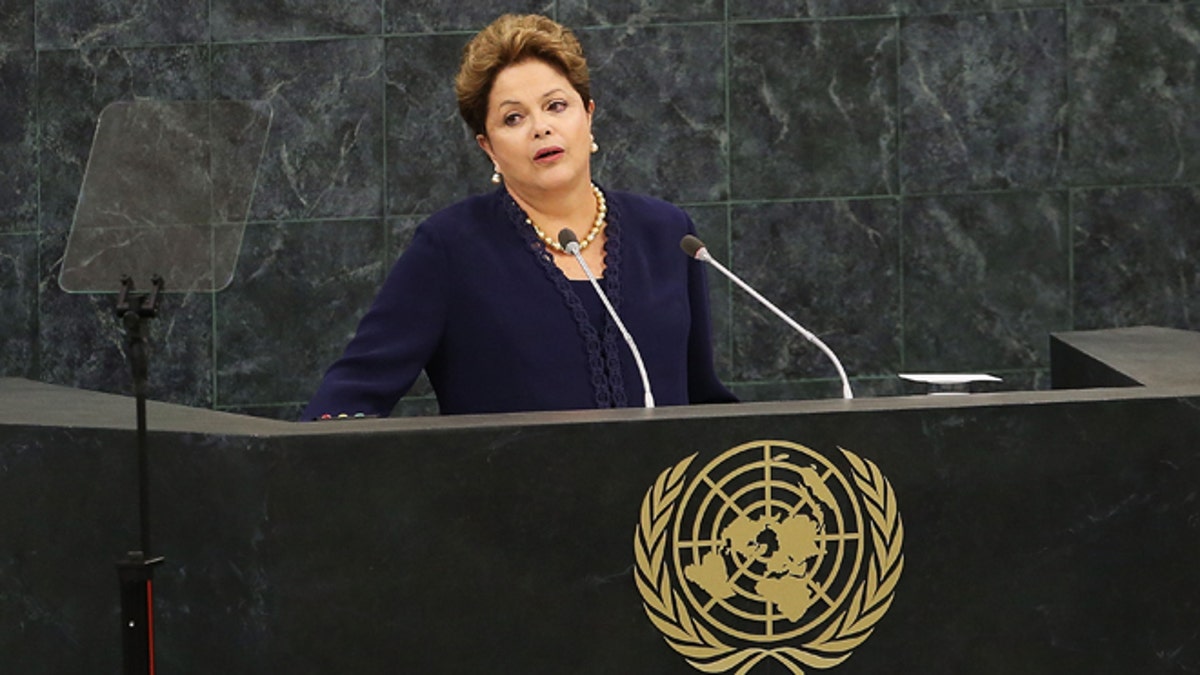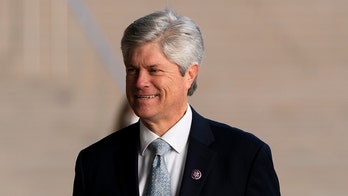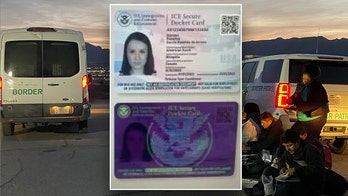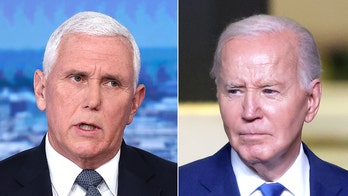
NEW YORK, NY - SEPTEMBER 24: The Brazilian president Dilma Rousseff speaks at the United Nations (U.N.) General Assembly on September 24, 2013 in New York City. This year's U.N. diplomacy session, the 68th General Assembly, is likely to be dominated by Syria's civil war and Iran's suspected nuclear ambitions. (Photo by Spencer Platt/Getty Images) (2013 Getty Images)
In light of recent damning revelation about the United States’ spying efforts on Brazilian President Dilma Rousseff’s administration, the leader of Latin America's top economic power announced an agreement between her country and the European Union to lay an undersea communications cable from Lisbon to the coastal city of Fortaleza to reduce Brazil's reliance on the U.S. technology.
During a summit in Brussels, Rousseff said the $185 million cable project would "guarantee the neutrality" of the Internet, showing Brazil’s plans to shield its Internet traffic from U.S. surveillance.
"We have to respect privacy, human rights and the sovereignty of nations. We don't want businesses to be spied upon," Rousseff said, according to Reuters. "The Internet is one of the best things man has ever invented. So we agreed for the need to guarantee ... the neutrality of the network, a democratic area where we can protect freedom of expression.”
Brazil currently relies on U.S. undersea cables for its communications with Europe, but the existsing cable is viewed as outdated and only capable of being used for voice transmissions.
The cable project announcement is just one in a series of moves that Rousseff has made to distance Brasilia from Washington since the spying efforts were revealed by National Security Agency leaker Edward Snowden.
Rousseff announced in September that she was postponing an official state visit to the U.S. later in the fall. So far there have been no plans to reinstate her visit to the White House.
The NSA espionage program also targeted Brazil's state-run oil company, Petrobras.
Brazil reportedly has been the top Latin American target for spying, with data on billions of emails and telephone calls swooped up in NSA programs. Other Latin American nations, such as Mexico, weren't spared, but thus far Rousseff has been the most vocal in criticizing the espionage.
While U.S. President Barack Obama has since cancelled spying on close allies, the damage appears to have already been done and many in the EU seem to take Brazil's side, especially in light of revelations that the NSA also listened in on German Chancellor Angela Merkel's own cell phone and some EU institutions.
The EU has also threatened to suspend data transfer agreements with the U.S. unless the country takes better steps to protect personal data of the union's residents.
Follow us on twitter.com/foxnewslatino
Like us at facebook.com/foxnewslatino




